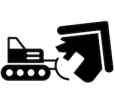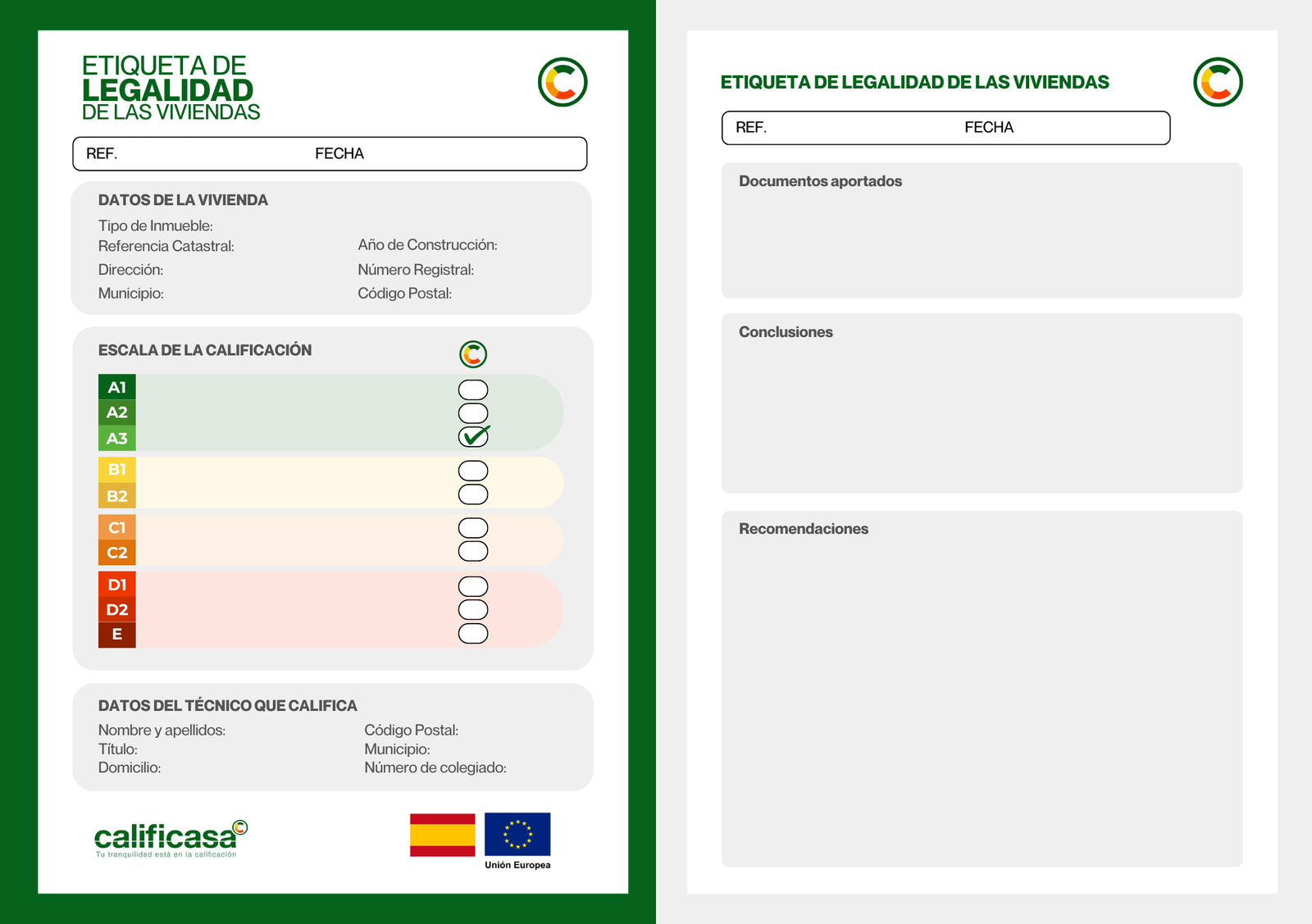What do you get with the Legality label?
A Legality Label is an independent preliminary review that, for just €249, gives you written confirmation within three days of whether the property you want to buy complies with local municipal regulations. This is crucial, as precisely these regulations determine whether there are hidden risks – the kind you want to uncover before signing a reservation contract and spending money on a full legal review by a lawyer. That’s why more and more buyers choose to get clarity upfront themselves with a Legality label – as a smart first step or a second opinion.
You will receive:
- An easy-to-understand report
- Clear conclusions and helpful recommendations
- Color-coded system (green, yellow, orange, red) that shows whether there are risks and which ones can be ruled out.

Will you have no issues
with permits?

Can you rebuild
after major damage?

Is the reconstruction cost
covered by insurance?

Is there no risk
of having to demolish something?

Will you avoid fines for
illegal construction?
You've found a property. Now what?
You’ve found a beautiful house or apartment. You’ve already agreed on the price with the real estate agent. But now what? The estate agent will want you to sign a contract and pay a reservation deposit — sometimes through a lawyer. Don’t let yourself be pressured. People still talk about illegal constructions or the “benefits” of tolerated or regularized buildings, but the consequences —like issues with permits or lack of insurance coverage— are rarely mentioned.
Stay in control – it’s your money and your peace of mind at stake.

Choose safety:
- A smart investment – free from risks that could lower the property's true value.
- A marketable property – No risks that might deter future buyers if you ever decide to sell.
- No unpleasant surprises – no risks you’re unwilling or unable to take.
Explore the three key steps to a safe purchase.
STEP 1 - Get documents checked
It’s not always clear which documents you’ve received — or which ones you should have. Is the explanation you were given accurate? Have them reviewed for just €95. You’ll receive a report with clear explanations.
STEP 2 - Uncover hidden risks
Why would you quickly sign a reservation contract and pay a fee if you don’t yet know whether there are hidden risks? Without full insight, you also can’t draft proper cancellation conditions — unless you literally exclude all risks in legally precise terms. And if unexpected issues arise, you don’t want to end up in a dispute over the refund of your reservation fee. That’s why you should request a Legality Label.
STEP 3 - Contract preparation and legal reviews
Only once the outcome of the Legality Label shows no unwanted risks should you involve a lawyer to draft the reservation contract (now with the proper cancellation conditions) and conduct a full legal review — including checks of documents, debts, taxes, and ownership status.
Can I check it myself?
The lawyers and architects who contributed to the development of the Legality Label are clear about it. You can take all the documents you’ve received about the property to the town hall and ask: “Does the house or apartment building comply with regulations, and can you confirm or point out if there are any risks?”
In most cases, you’ll be told that you first need to have the zoning plan reviewed by a specialist such as an architect. And that is exactly what the Legality Label is.



